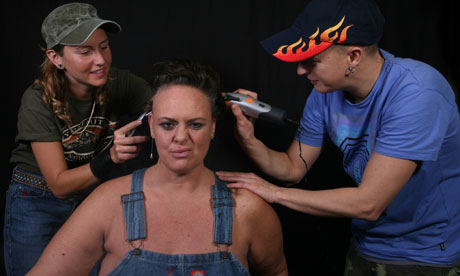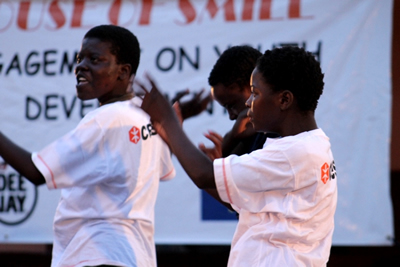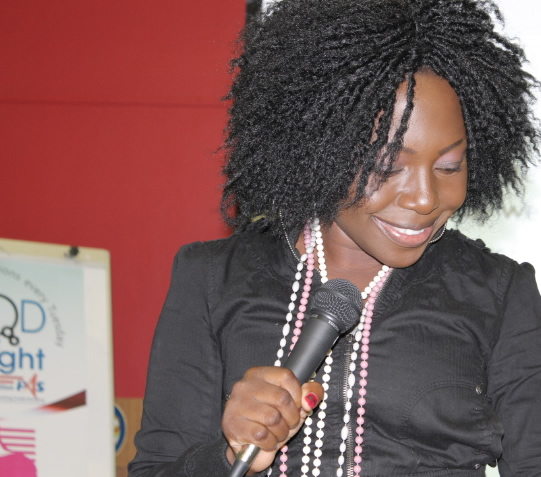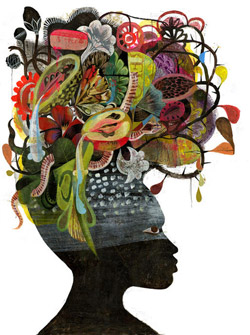Do you have the PHD Syndrome?
By Kudakwashe Chitsike
“Unless and until we get rid of PHD, women will not go far in any field.” In this context a PHD is not a doctorate degree, it is an acronym that stands for Pull Her Down. The Pull Her Down Syndrome is sadly one that most women suffer from regardless of status in society. Upon hearing the term for the first time I was shocked as it seemed in the group there were a few of us who had never heard of the PHD, I knew what it was but I hadn’t realised that the behaviour had its own acronym! The syndrome is based on an inferiority complex, “We look down upon each other and ourselves by saying we are not able to do it, let the men do it.”
The Research and Advocacy Unit (RAU) held 11 focus group discussions with women from different parts of the country to talk about politically motivated violence against women. The focus group discussions also explored what women are likely to face as we draw closer to elections, looking at what happened in past elections and what efforts are being made to protect women from violence.
Inevitably these discussions also brought about the issue of encouraging women to participate in national processes and aspire to hold positions of authority. It is within this context that we established that the PHD is holding women back as women do not support other women to occupy leadership positions. W “We grew up being told that men should be the ones’ to lead so we still have that mentality and letting it go is a bit difficult.” It was stated repeatedly that when a woman is standing for a political position, she has to struggle for acceptance from her peers as petty jealousies based mainly on gossip rear their ugly heads. The main reason for women selling out other women is seldom for their political affiliations but mostly because of the PHD syndrome; politics provides a perfect cover for women to settle scores that have accumulated over years.
Another issue that features in the political PHD syndrome is marital status; if a woman is single, involved in politics and successful the most common misconception is that she used unscrupulous mainly immoral means to get to the top.”A married woman is said to be more honourable than one who is not married so when an unmarried woman runs for office she is judged harshly.” If she is married then she doesn’t have a strong husband who can bring her to order as politics and marriage do not mix, never mind that men have been doing it for time immemorial.
A woman involved in politics, as with women in other male dominated fields has to work twice as hard to gain respect and ironically the people she has to impress the most are other women. Women would rather nominate a man than another woman for a political position, as “men are more educated and politically astute”, but when we asked how the women will ever become educated and astute if we do not give them opportunities, the women had no response.
The women in the focus groups acknowledged that women need to be given the opportunities to learn on the job but stated that there is a need for a total change in mindset, so that we accept that women can do the same as men in politics and any other fields considered to be male domain. The way to address this is by having confidence building sessions for women, which should start with confidence in the home before addressing what happens in the public arena. The inferiority complex results in “women not standing up for what they want so if someone says that we are unable to do something then we start to doubt ourselves and believe that we will fail and thus we fail before we even begin.”
For there to be a change in mindset it is important to look at cultural and religious beliefs that perpetuate the myth that women are below men and they are overstepping their bounds when they participate in politics. It is important to involve the men and older women, as they are the custodians of the beliefs that oppress women. Women’s organisations have to take on a much bigger role and increase visibility particularly in the rural areas where cultural and religious beliefs, which discriminate against women, are deeply rooted.
It has been said often enough by women in high political positions that it is an uphill journey to the top for a woman to stand against a man for a position. They have to contend with sexual harassment and or sexual violence, superiority complexes from their male counterparts without having to deal with the PHD from women. Instead of supporting the efforts of those who are brave enough to say ‘bring it on’ to the men, other women are scheming to find ways to bring her down. The women stated that many times when a woman is elected, she stops behaving and thinking like a woman and takes on a ruthless male persona, where she has forgotten the struggles she endured as a woman to get there, she forgets about the women left behind in the struggle.
Women in these discussions varied in age, geographical locations, backgrounds and political affiliation but their responses were very similar with regard to PHD, “we women are our own worst enemies as we don’t want to see our peers succeed.” The PHD syndrome however is not confined to the political realm it appears in every aspect of every woman’s life. It is about undermining the efforts of another for usually very superficial reasons. As women we should implement programmes that encourage women and girls to grab equal opportunities with men as well as support each other in whatever areas we decide to venture into.













